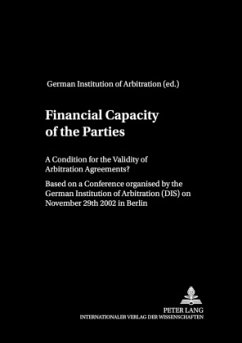
The German Prosecution Service
Guardians of the Law?
Versandkostenfrei!
Versandfertig in 1-2 Wochen
77,99 €
inkl. MwSt.
Weitere Ausgaben:

PAYBACK Punkte
39 °P sammeln!
Acclaimed as the "the most objective prosecutors in the world", the German prosecution service has long attracted the attention in the past of comparative law scholars. At first glance, the institutional position and statutory mandate of German prosecutors indicate that that reputation is well-deserved. Unfortunately, the introduction of charge-bargaining has opened the door to criticism that German prosecutors have abandoned their role of objective decision-makers. Using interview data collected from interviews with German prosecutors themselves as well as quantitative data, the book uses the...
Acclaimed as the "the most objective prosecutors in the world", the German prosecution service has long attracted the attention in the past of comparative law scholars. At first glance, the institutional position and statutory mandate of German prosecutors indicate that that reputation is well-deserved. Unfortunately, the introduction of charge-bargaining has opened the door to criticism that German prosecutors have abandoned their role of objective decision-makers. Using interview data collected from interviews with German prosecutors themselves as well as quantitative data, the book uses the actual voices of German prosecutors to show how real-world constraints, rather than changes in the law, undermine the ability of German prosecutors to objectively seek the truth. The book will take readers behind closed doors where prosecutors discuss case decisions and unveil the realities of practice. As a result, it will critically revise previous studies of German prosecution practices and offer readers a well-researched ethnographic analysis of actual German decision-making practices and the culture of the prosecution service. Unlike prosecutors in America's adversarial system, whom critics claim are driven by a "conviction-mentality" and gamesmanship, German prosecutors are institutionally positioned to function as (at least semi-)judicial officials dedicated to finding a case's objective truth. The book argues that, organizational incentives and norms, rather than the boundaries of the law determinately shapes how prosecutors investigate and prosecute crime in Germany.














